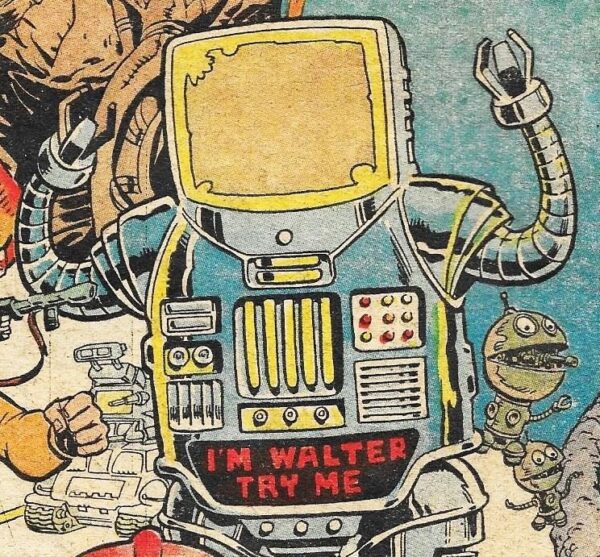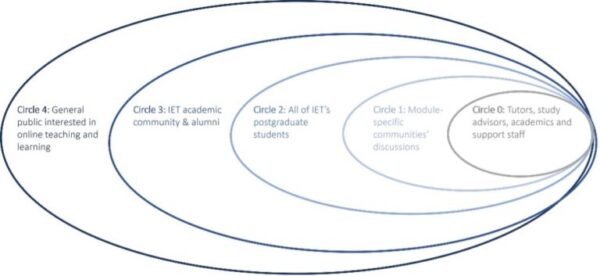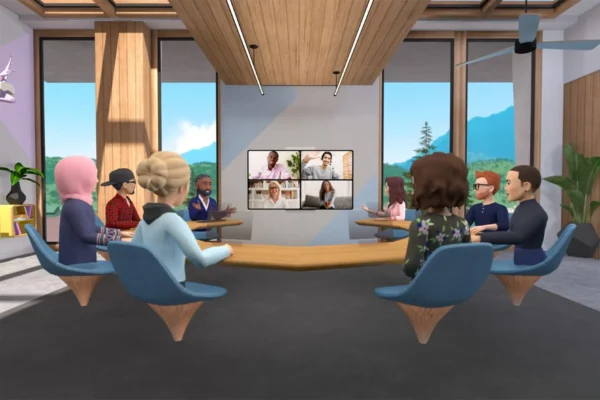edtech
-
Smart motorways and lessons for tech adoption
In the UK at least, the implementation of smart motorways has been a curious story to follow, and I think in its roll-out and reaction there is much that can be learnt for technology adoption across higher ed. First up, what are “smart” motorways anyway? They are “a section of a motorway that uses traffic management methods to increase capacity and reduce congestion in particularly busy areas.” There are three types of them: A lot of money (and traffic queuing due to disruption) has been spent on implementing smart motorways, but the rollout of the last category of ALR smart motorways was paused following safety concerns. The Daily Mail and…
-
The Cursed Earth post – the AI version
In my last post I messed around with the idea of Judge Dredd’s Cursed Earth story as a metaphor for aspects of educational technology. I thought I’d try this idea as a ChatGPT prompt. It strikes me as a good example of the type of thing generative text isn’t very good at, because it’s quirky and relies on some depth of understanding. At OER23 Dave Cormier called this kind of AI “the autotune of knowledge“, and this seemed like a good example to test that notion. What it generated is below. Thanks, I hate it. I mean, it’s very impressive from such an idiosyncratic prompt, but it’s so bland it…
-
Give me an M! Give me an A!
via GIPHY One of the things I have enjoyed working on the most during my 375 year career at the OU, is the Masters in Online and Distance Education (MAODE). I’ve blogged previously about how I was saddened when this was closed down at the OU. Since then we have continued to produce curriculum in IET, most notably very successful microcredentials, under the leadership of my colleague Leigh Anne Perryman. We have also been working on developing a new Masters in Online Teaching (MAOT). This will comprise of the existing course H880 Technology Enhanced Futures, then 60 points chosen from the array of microcredentials (or a module from the appropriate…
-
Oh no, it’s another metaverse hot take
via GIPHY Following on from my late to the party Twitter hot take, here is my even later to the party one on the metaverse (next week – learning objects). I think for many of us who have been in and around educational technology for a while, the idea of a shared 3D virtual world brings back memories of SecondLife and even earlier excitement about MUDs (Multi-User Dungeons) and MOOs (MUD, object-oriented). And while it easy to dismiss another attempt at the virtual world as universal education platform, it’s probably worth revisiting why SecondLife failed and evaluating if those reasons hold true for the Metaverse. Firstly, we are seeing very similar over-hyping of…
-
Oh no, it’s another Twitter thought piece
via GIPHY I didn’t want to write this, you don’t want to read it, but here we are… I used to play a football manager game in the 90s (gaming was all downhill after Championship Manager 98), and once I learned the best players to sign, and how to keep rebooting until I won a game, I could get to the stage where Southend were winning the Champions League. There’s nowhere else to go after this triumph, and so my designs turned dark. As a Spurs fan I took a childish pleasure in taking over Arsenal and doing all I could to ruin them before getting the sack. I would…
-
Reviewing the ed tech angst
via GIPHY Audrey Watters’ understandable withdrawal from the ed tech sphere has prompted some musings, and I like a good navel gaze, so I thought I’d join in. Audrey sums it up rather bleakly: I have to put this decade-long project to rest so that I can move on to something that doesn’t consume me in its awfulness and make me dwell in doom Jim Groom bemoans the selling out by many in the field, stating: There are a lot of edtechs, in the true sense of that word for me, that have willingly resisted the lure of exchanging cachet for cash. Folks who continue to good work, edtechs that I deeply respect…
-
Why “Uber for education” metaphors are flawed (and just rubbish)
I blogged last week about the ‘Netflix for learning” metaphors doing the rounds currently. These are just the latest incarnation in the long running analogy [Insert current tech business] for education/learning. It’s so predictable that I created a random generator for it. What follows is an extract from the upcoming Metaphors of Ed Tech book, which sets out why this type of metaphor is both not very useful, and also potentially harmful in developing effective ed tech. _____________________________________________________________ There is a very strange tendency in technology writing to take any successful business and view it as a universal acid that burns through everything. It seems the most accessible metaphor for…
-
Proctorio sponsor OEB, so it’s a no from me
via GIPHY Online Educa in Berlin is one of the biggest ed tech conference in Europe. I’ve been a couple of times and was going to attend this year, mainly for the gluhwein. But I see on their website that proctoring company Proctorio is now their platinum sponsor. I genuinely appreciate that running conferences is a difficult balancing act, made even more precarious in post-pandemic times when travel is still uncertain for many. Getting sponsors for a conference is often the difference between it being feasible and not. But equally, one must ask, what would it take for a sponsor to be deemed unsuitable? And for me, Proctorio are some…
-
Proctorio – Unis as custodians
via GIPHY During the recent European Super League furore there was much talk of football club owners being ‘custodians’ of the game (see, for example Everton’s statement). This might be a romantic, quaint notion in a world of aggressive capitalism, but it captures something about being in charge of institutions that have been around for a long time, will likely persist beyond the current owners, and contribute to something larger in society. Universities and all HEIs occupy a similar role in society in many respects (although without the same pay as footballers it should be noted). The Principals and Vice Chancellors of these institutions are similarly in a custodian role…
-
Educators are not risk averse and complacent
via GIPHY I know the article was clickbait, but this THE piece, entitled “Risk-averse academy needs to get on board with new tech” was a classic of a sub-genre that has been around for at least 30 years. It contained all the requisite elements of the “why are educators stuck in the past (unlike me)?” articles. These are: Based entirely on a small set of anecdotes – this one is based on using VR for a small group of students. Issues of scalability, access, privacy, replicability are too uncool to bother with. Uncritically embedded in start-up culture and language – the “cool factor was off the charts”, “Experimenting with truly…



